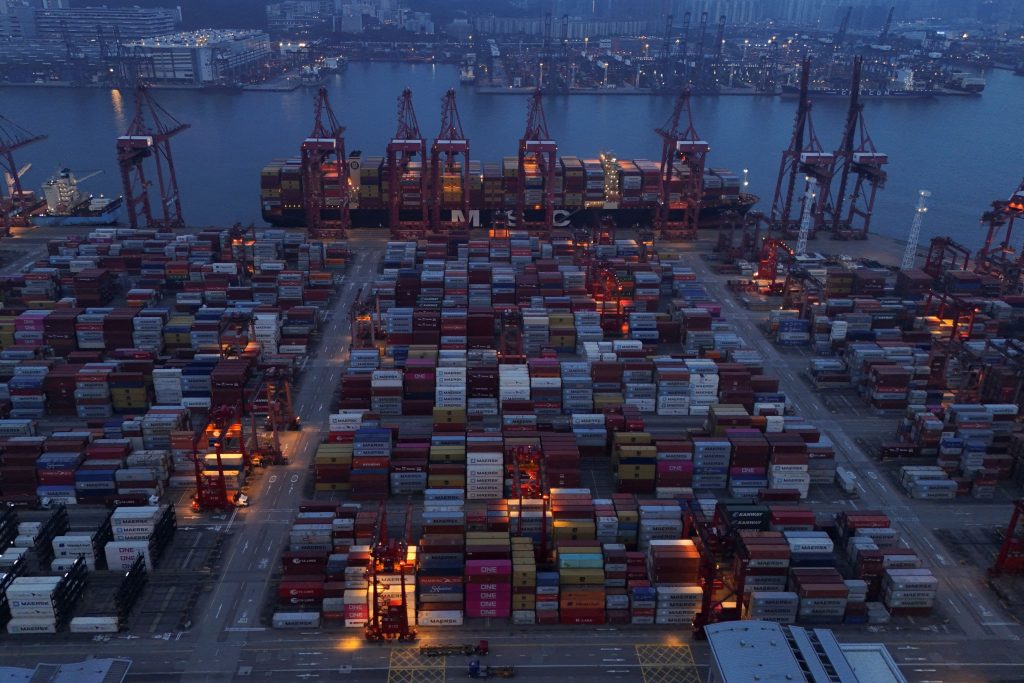Anne Applebaum is a writer for The Atlantic and Senior Fellow at Johns Hopkins School of Advanced International Studies & Agora Institute. She will participate in Delphi Economic Forum on April, 10-13.
Two and a half years ago, you wrote in the Atlantic an article titled “The bad guys are winning”. Since then, the bad guys are not only winning, but also multiplying themselves. Should we despair?
We should never despair. Authoritarian propaganda seeks to spread pessimism, nihilism and cynicism. Dictators need to convince their own citizens that there is no better future, nothing to hope for. They need to convince us, in the democratic world, that our civilization is dead or dying, that there’s nothing we can do about it and that they will win. So it’s very important to tell them that they are wrong.
What or who do you regard as the greatest threat to democracy today? Is there a formula that all autocratic populist leaders, the “Autocracy Incorporated” as you call them, use?
The greatest threat to democracy comes from the network of autocratic regimes who are now working together to help one another stay in power. The members of these networks are not only connected to one another within a given autocracy, but also to other autocratic countries, and sometimes to allies inside democracies.
Corrupt, state-controlled companies in one dictatorship do business with corrupt, state-controlled companies in another. The police in one country may arm, equip, and train the police in many others. The propagandists share resources – the troll farms that promote one dictator’s propaganda can also be used to promote another’s – as well as themes: again, the degeneracy of democracy, the stability of autocracy.
That doesn’t mean that there is a secret room somewhere where bad guys meet, as in a James Bond movie. Among modern autocrats are people who call themselves communists, monarchists, nationalists, and theocrats. Unlike military or political alliances from other times and places, this group doesn’t operate like a bloc, but rather like an agglomeration of companies, bound not by ideology but rather by a ruthless, single-minded determination to undermine the democracies and to preserve their power. This is why, yes, I’m calling them Autocracy, Inc.
Poland looks like an exception to the rule: democracy is taking its revenge. What is Tusk’s “secret recipe”?
Poland was never a full-blown autocracy, just a democracy badly weakened by the Law and Justice Party, national-populists who wanted to change the rules in order to keep themselves in power indefinitely. They took over public television and made it into a form of extremist propaganda, illegally changed the composition of the high courts, repressed judges who didn’t agree with them and destroyed the civil service. They also found ways to channel taxpayers’ money to their party, and thus had far more money and better advertising during the campaign. It was an unfair election. But they were so sure they would win that they didn’t prevent the electoral commission from doing its job.
Tusk won in part because the corruption of Law and Justice had become visible to everyone, and in part because the previous government passed an abortion law so harsh that a woman with a damaged fetus died because she was unable to get medial care. A whole generation of young women were therefore motivated to enter politics.
But Tusk also won because he and his team made a huge effort to pierce the far-right echo chamber. He campaigned all over the country, including in places where he and his party are unpopular, put a lot of younger people at the center of the campaign and put the issue of Poland’s European Union membership at the center of the campaign too. Poles want to stay in Europe, and they voted to remain.
Donald Trump appears today as the favourite of November’s elections. What should Biden do to prevent the nightmare?
I am not sure why you think he is the favourite. It’s much too early to do any reliable polling. But yes, Biden needs to campaign the way Trump did: going to every corner of the country and making the campaign about real issues – the economy, healthcare, infrastructure – and not phony culture wars.
In case Trump wins, do you consider that Europe can follow an autonomous course?
If Trump wins, Europe needs to have its own security policy, immediately. Even if Trump doesn’t win, it’s clear that Europe must be prepared, in future, to live in a world without US military support, because there is an important part of the American voting public that doesn’t care about Europe anymore. The planning should begin now.
According to the polls, the 2024 European Parliament elections will see a major shift to the right in many countries, with populist radical right parties gaining votes and seats across the EU. What should the liberals do?
Liberals should win elections, like Biden did in 2020 and Tusk did in 2023: By campaigning on real issues, and not letting the far-right turn the vote into a referendum on migration or gay rights.
Ukraine is clearly in defence. Some months ago there was discussion about a “stalemate”, now you hear Elon Musk saying that “a protracted war will lead to the fall of Odessa”. What’s your point of view?
For the past few months, Western observers have been tossing around the word stalemate, as if the Russian invasion of Ukraine had settled into a permanent stasis. In fact, the battlefield is dynamic. The front line is constantly changing, and the changes, both material and psychological, are starting to favor Russia. The Ukrainians are just as brave as they were a year ago and just as innovative. Their drones have been hitting Russian oil and gas facilities all over the country, hundreds of miles from Ukraine. With no navy of their own, they have pushed much of the Russian Black Sea fleet away from their shores.
But on the ground, in the southern and eastern parts of their country, they are rationing ammunition. They’ve never had sufficient missiles and bullets, and now they are at risk of not having enough to keep fighting at all. This is our fault: America’s fault, Europe’s fault.
Is there a way out of this war with Putin in charge of Russia?
The war will end when Russian troops leave Ukraine. Just as the French decided in 1962 that Algeria could become independent of France, just as the British accepted in 1921 that Ireland was no longer part of the United Kingdom, the Russians must conclude that Ukraine is not Russia. I can’t tell you which political changes in Moscow are necessary to achieve that goal. I can’t say whether a different Russian leader is required—maybe or maybe not. But we will recognize this change when it happens. After it does, the conflict is over and negotiating a final settlement will be possible.
Remember, there are many ways to convince Russia to leave Ukraine, not all of them military. There are political and economic tactics we could use. The Ukrainians have already begun targeting Russian oil and gas facilities. If we were really understood that we were fighting this war as if our own security depended on it, we would encourage them to go farther.



